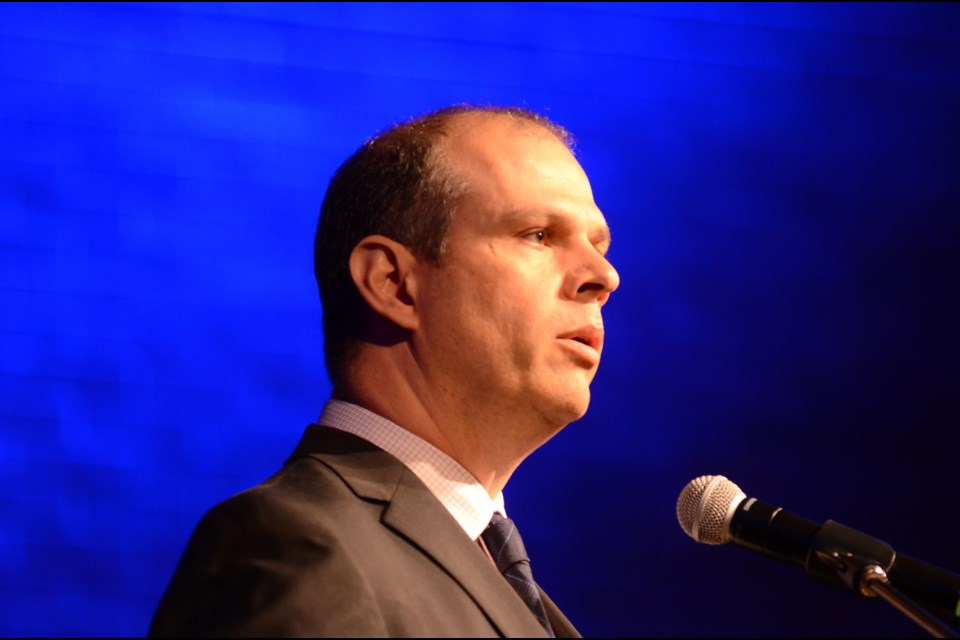The theme of mental health has a very personal resonance for Jamie West, the president of the Sudbury and District Labour Council.
West, host of the Day of Mourning ceremony Thursday at LU's Fraser Auditorium, told the crowd he was glad this year's event focused on mental health.
He told the story of his young daughter, who casually mentioned one day in the car that her mommy had been crying. It turns out, she was stressed because West was dealing with the aftermath of a fatal incident at the mine when he worked at Vale.
“She was crying for me,” he said. “My wife was crying that day because I couldn't get help.”
Ideally, he said people would be as open about getting help for mental health issues as they are about going to a dentist appointment. West said he hopes that being open about his own struggle will help others come forward.
“You think you're alone, but you're not,” he said. “My name is Jamie West, I'm president of the Sudbury and District Labour Council, and I've struggled with mental health.”
The Day of Mourning was founded in Sudbury more than 30 years ago, and today is observed in more than 80 countries. Leo Gerard, president of United Steelworkers International union, said it was established after a string of mining tragedies.
Gerard also picked up on the mental health theme, reminding the audience that mining is one of the professions where employees have to go back and work in the location where a friend and colleague died.
He cited one case where a father and son worked at the same mine. After the son was killed on the job, the father had to return to work at the site where his son died – and deal with the stress of grieving and the reminders that brought.
Finding ways to successfully address workplace stress and well-being can make a huge difference for workers in all sectors, Gerard said.
“Think about how much better life is when you to work in a collegial atmosphere,” he said. “Think about how much worse your life is when you hate going to work.
“Persevere for what's right, and we'll eventually get there.”
Other dignitaries at the ceremony had their own stories – Nickel Belt MP Marc Serré's brother-in-law was killed underground; Sudbury MP Paul Lefebvre's father had a boiler explode in his face, leading to severe burns.
Nickel Belt MPP France Gélinas talked about a Sudbury man who clearly needed mental health intervention, but was twice sent home by the hospital.
“And he went home and killed his son,” Gélinas said.
There's a need not only to encourage people to come forward when they need help, she said, but also to ensure services are available to them when they do.
On a more positive note, she said legislation passed this spring in the Ontario Legislature – supported by all parties – means paramedics, firefighters and police dealing with PTSD will automatically get WSIB support, because the province will assume it's a result of workplace stress.
“It took seven years, and a lot hard work, sweat and tears, but we got there,” she said. “Too many of our firefighters, paramedics and police commit suicide.
“(So) we are here to mourn the dead, but we will always be here to fight for the living.”
